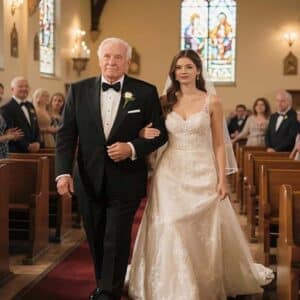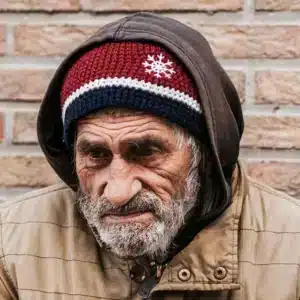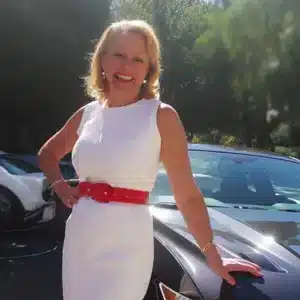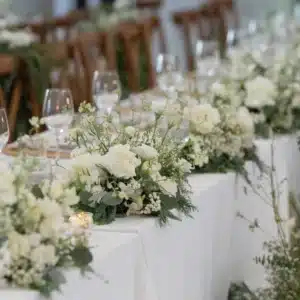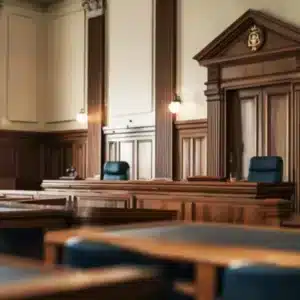I’m Selena, 17, and my dad, Billy, is a gardener. Since my mom died when I was 12, it’s been just the two of us. We don’t have much, but we have pride in the way we live. Dad leaves before sunrise in worn boots and an old cap, and he comes home with soil ground into the lines of his palms and tucked under his nails no matter how hard he scrubs. On weekends I work beside him—planting roses for Mrs. Chen, trimming hedges at the park, building beds that make our block look like a magazine spread. My hands get just as dirty, and I don’t mind.
Dad always says, “It’s honest work. Nothing to be ashamed of.” I believe him. But Taylor didn’t.
Taylor lives in Willowbrook Estates, where lawns cut themselves and everything sparkles because someone else is paid to polish it. Since freshman year, she’s made digs about my thrifted clothes and jokes about how I “smell like fertilizer.” She keeps it just below teacher radar and loud enough to sting.
Last week, I forgot my lunch. Dad drove over and crossed the parking lot in his work clothes, sweat on his brow, love in every step. Through the cafeteria window I watched him walk in, paper bag in hand. Taylor watched too.
“Oh my God,” she said, too loud. “Is that your dad? Ewww—those hands. DISGUSTING.” Laughter rippled. “How do you even hug him? Try soap!”
Dad reached my table, oblivious, and set the bag down. “Made you something special,” he said, kissing my hair before heading back to his truck. I picked up my lunch and moved to a corner table while the giggles followed me across the room.
Prom came faster than I wanted. Dad talked for weeks about the father-daughter song and even bought a crisp new shirt. He spent extra time scrubbing that night, but the dirt under his nails stayed. When I came downstairs in the consignment dress we’d found, his eyes lit like I was wearing diamonds.
The gym glittered with lights and silver streamers. We found a table in the back, away from Taylor and her crowd. The father-daughter dance started, and Dad held out his hand. “May I?”
We’d made it halfway across the floor when Taylor’s voice cut through the music. “GUYS, LOOK AT HER DAD’S HANDS! I CAN’T BELIEVE SHE BROUGHT HIM.” More laughter. “How do you even stand TOUCHING him?”
Dad’s fingers tightened around mine. His face stayed steady, but hurt flashed in his eyes—the same ache I’d carried for weeks. Something in me snapped, and so did a memory from earlier that evening: Taylor’s mom, whispering to another parent in the lobby about the car accident three years ago. Taylor had fought with her dad that morning; afterward, she’d been picking fights with the world.
I leaned toward my father and whispered, “She lost her dad, too.”
He looked at me, understanding dawning, then walked toward the DJ and asked for the microphone. The music stopped. Conversations died. “Excuse me,” he said, voice warm and even. “Taylor, would you honor me with a dance?”
Silence flooded the room. Taylor went pale. Dad stepped down with his work boots squeaking on the gym floor and held out his hand. “I’d be grateful for the chance.”
She glanced around—her friends, the crowd, me—then stood and put her trembling hand in his. They swayed to “Wonderful Tonight.” From across the room I saw his lips moving, gentle and patient. Halfway through, her shoulders shook and tears slipped down her cheeks.
When the song ended, Dad reached into the canvas bag he’d brought and pulled out a small bouquet of roses and baby’s breath he’d cut from our yard that morning. “These were meant for my daughter,” he said so everyone could hear, “but I’d like you to have them. I’m told you walk past flowers every day. I want you to know how much care it takes to grow something beautiful.”
Taylor took the bouquet. The cruel mask was gone; what was left was a girl who missed her father so much it hurt to breathe. “I’m sorry,” she whispered.
“We all miss people we love,” Dad said. “That’s what makes us human.”
The car ride home was quiet. Finally he asked, “How did you know?”
“I overheard her mom,” I said. “She thinks the fight that morning makes it her fault. Anger’s easier than grief.”
He nodded. “Sometimes it is.”
Three days later, Taylor showed up at our door with her mom. She looked smaller than I’d ever seen her, clutching a pair of garden gloves and a watering can. “Taylor has something to say,” her mom prompted.
“I’m sorry,” she said, voice tight. “I was cruel and wrong. I want to make it right.”
Her mom explained the plan: after-school shifts in our garden for the next few weeks—to feel real work, to learn what those “dirty” hands had created. On her first day she flinched at mud, groaned about the state of her nails, complained about everything. Dad didn’t flinch. He showed her how to tuck marigold seeds into soil and how tiny dots become riots of color. He taught her when to water, when to wait, and how delicate new growth needs patience more than anything.
By day three, the complaints softened into questions. She sat on our porch steps that evening with dirt under her nails for the first time, stared at her hands, then at mine. “I think I get it,” she said.
She’s not a different person overnight. Growth takes time. But there’s more kindness in her eyes now, less armor in her voice. And those hands she once mocked? They’re teaching her what strength really is—the kind that kneels in the dirt, tends what’s fragile, and builds beauty out of nothing.
Dad still scrubs with the orange soap at night. The lines in his palms still hold the day’s work. When I catch him looking at his hands in the bathroom mirror, I say it before he does: “It’s honest work.”
He smiles. “Nothing to be ashamed of.”
I look down at my own stained fingers and think about prom night, a bouquet, and a girl finding her way back to herself. Dirt, it turns out, isn’t something to hide. Sometimes it’s where the lesson lives.
